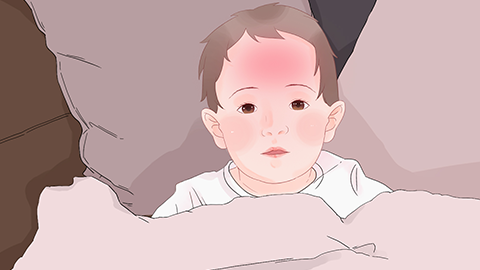What causes fever in a 13-month-old baby, and what should be done?
Generally speaking, fever refers to an elevated body temperature. A 13-month-old baby's fever may be related to incomplete physical development, excessive clothing, upper respiratory tract infection, infantile emergency rash (roseola), acute gastroenteritis, and other causes. It is recommended to provide general treatment and medication according to the underlying cause. If the baby shows any discomfort, timely medical attention is necessary. Detailed explanations are as follows:

1. Incomplete Physical Development
At 13 months old, a baby's body is still developing. When the ambient temperature changes, the baby's thermoregulatory center may not respond effectively, leading to an increase in body temperature. As the baby grows, this condition will gradually improve and typically requires no special treatment.
2. Excessive Clothing
Overdressing a baby can slow down or prevent proper heat dissipation, which may also cause fever. In such cases, adjust the baby's clothing promptly and choose loose, breathable, cotton garments to help the body cool down.
3. Upper Respiratory Tract Infection
Upper respiratory tract infections are usually caused by bacterial or viral infections, such as influenza virus, rhinovirus, adenovirus, and streptococcus. These pathogens can stimulate the body, increasing body temperature and causing fever. Symptoms may include coughing, runny nose, and nasal congestion. Medications such as oseltamivir phosphate granules, amoxicillin granules, and paracetamol oral solution may be used under a doctor's guidance.
4. Infantile Emergency Rash (Roseola)
Infantile emergency rash is commonly caused by human herpesvirus 6. This condition is characterized by sudden high fever, with body temperature often exceeding 39°C, usually accompanied by skin redness and rash. After diagnosis, medications such as ibuprofen suspension drops, calamine lotion, and acyclovir for injection may be used according to the doctor's advice.
5. Acute Gastroenteritis
Acute gastroenteritis is often associated with improper diet or bacterial infection. Continuous exposure to these causative factors may irritate the gastrointestinal mucosa, affecting the body and causing persistent fever. Symptoms may include diarrhea, vomiting, and abdominal pain. Medications such as cefaclor granules, ribavirin granules, and montmorillonite powder may be used under medical supervision.
It is recommended to first observe the baby's condition. If symptoms are severe, timely treatment according to the specific cause is necessary to avoid delaying the illness. A balanced and nutritious diet should also be maintained during treatment.





